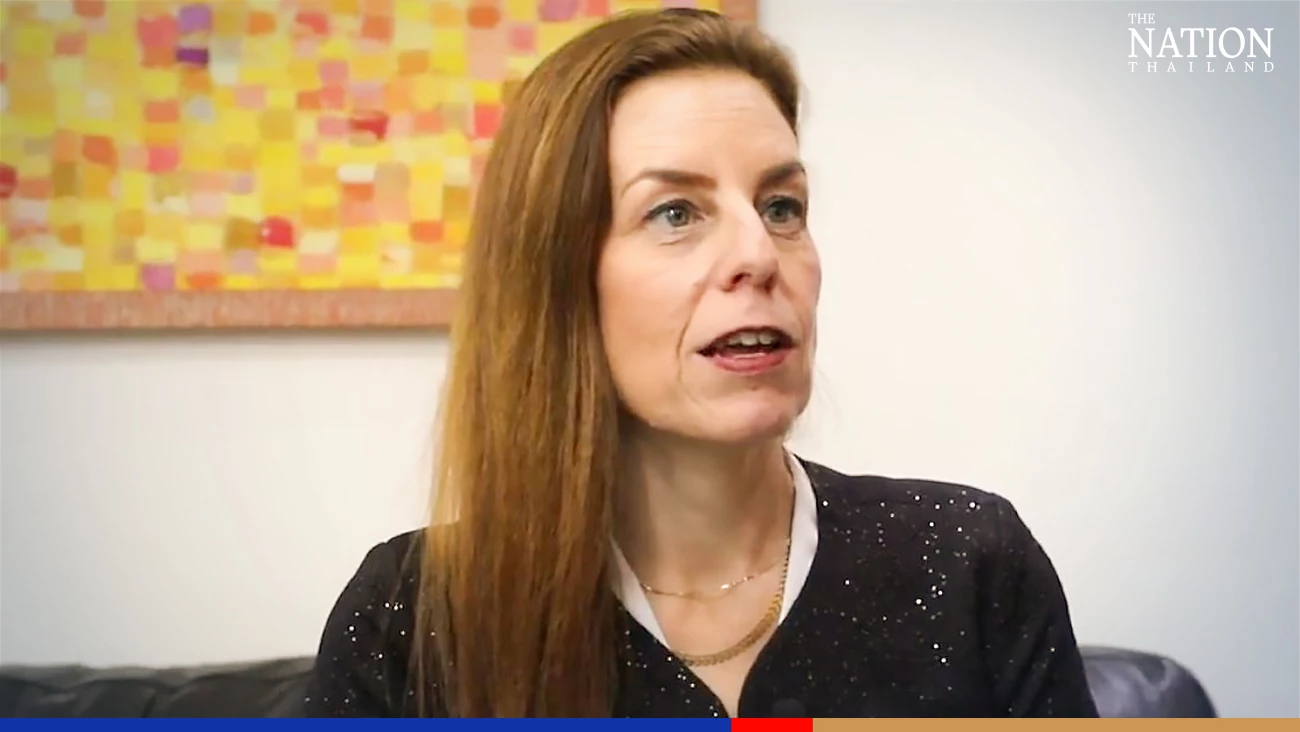
As I am writing this, hundreds of world leaders, government representatives, experts from the private sector, academics and many more specialists have gathered at COP27, the United Nations climate conference in Sharm el-Sheikh, Egypt, to discuss ways to forestall and adapt to the climate crisis.
By Orna Sagiv,
Ambassador of Israel to Thailand
Israel has sent a large delegation to COP27 and established a first-of-its-kind pavilion, focusing on climate innovations and solutions. By displaying its large climate innovation-focused eco-system, Israel aims to make a real global contribution, both towards reducing carbon emissions and aiming to help countries prepare for, and cope, with the consequences of climate change.
This year, 2022, is the year when it became starkly clear to all of us that we are in the midst of a powerful climate crisis that will only get worse. Widespread floods in Pakistan damaged about one-third of the country, displacing tens of millions from their homes and livelihoods, devastating hurricanes hit the East Coast of the US and the Caribbean, wreaking havoc on a massive scale, and severe droughts have dried up major rivers in Europe and China.
Thailand is no exception: Ayuthaya and Ubon Ratchathani, as well as several other provinces, have been inundated for months. In 2011 Thailand suffered its worst floods in 70 years, and in 2005 the worst drought in 40 years. Forest fires engulfing the North have gotten worse in recent years as well. And the list goes on…
In 2021, Israel announced its national goal to reduce carbon emissions by at least 85 per cent by 2050. The decision also sets an intermediate target of a 27 per cent reduction in emissions by 2030.
Similarly, Thailand has committed to cutting emissions by 20-25 per cent and recently revised the deadline for greenhouse gas reduction from 2030 to 2025 – five years earlier.

In order to achieve its goals, Israel has to invent creative solutions and has initiated several steps such as investments in various fields, including electric vehicles, in order to reduce carbon emissions in industry, businesses and more.
Israel is well known for its technological advancement and innovation in the areas of water, agriculture and food security.
An alternative protein industry is another fascinating area, which aside from the debate on animal cruelty, also offers solutions for reduction of greenhouse gas emissions. Products such as meat, milk and eggs are being produced in laboratories, using methods that emit nearly zero greenhouse gas, and which allow huge swaths of agricultural land, currently being used for livestock purposes, to be freed up for ecological restoration and reforestation.
Israel’s young and vibrant start-up ecosystem, and Thailand with its large-scale conglomerates, are a perfect match.
In 2019, Thai Union Group, one of the world’s largest seafood producers, invested in Flying Spark, an Israel-based FoodTech start-up, to promote the future of alternative high-value protein products, while minimising the ecological footprint. Using larvae from Ceratitis Capitata that in nature feed on fresh fruits, Flying Spark’s technology requires very little water and land, creates no methane emissions and does not use hormones or antibiotics. This enables easy and low-cost cultivation and processing methods, with nearly zero waste.

Earlier this year, Charoen Pokphand Foods, one of the world’s leading integrated agro-industrial and food businesses, announced its partnership with Future Meat Technologies, a leading Israeli cultured meat company. Future Meat products are uniquely non-GMO, as their technology allows chicken, lamb, pork and beef cells to grow without the use of genetic modification, as well as the said ecological benefits.
Israel certainly has a lot to share and contribute in the fight against the climate crisis: water desalination and recycling technologies; smart irrigation systems and modified crops; creating and storing clean energy; alternative proteins that are uniquely suited to meet a rising global demand for quality protein at a time of decreasing environmental resources; and more.
All these technologies will assist in protecting our planet while paving the way for increased global food, water and energy security.
In order to overcome the climate crisis, humanity needs practical and applicable solutions for reducing greenhouse gas emissions that can be implemented on a local as well as global scale. These solutions should help meet global mitigation goals and reinforce resilience among countries and communities that are already affected.
International cooperation in the field of climate innovation is essential and provides an excellent opportunity to strengthen the economy for the benefit of all while preserving our nature, climate and ecological diversity. COP27 is the manifestation of all countries joining hands to make a better future for our children.
In the name of all of humankind, I wish all the participants the best of luck.


